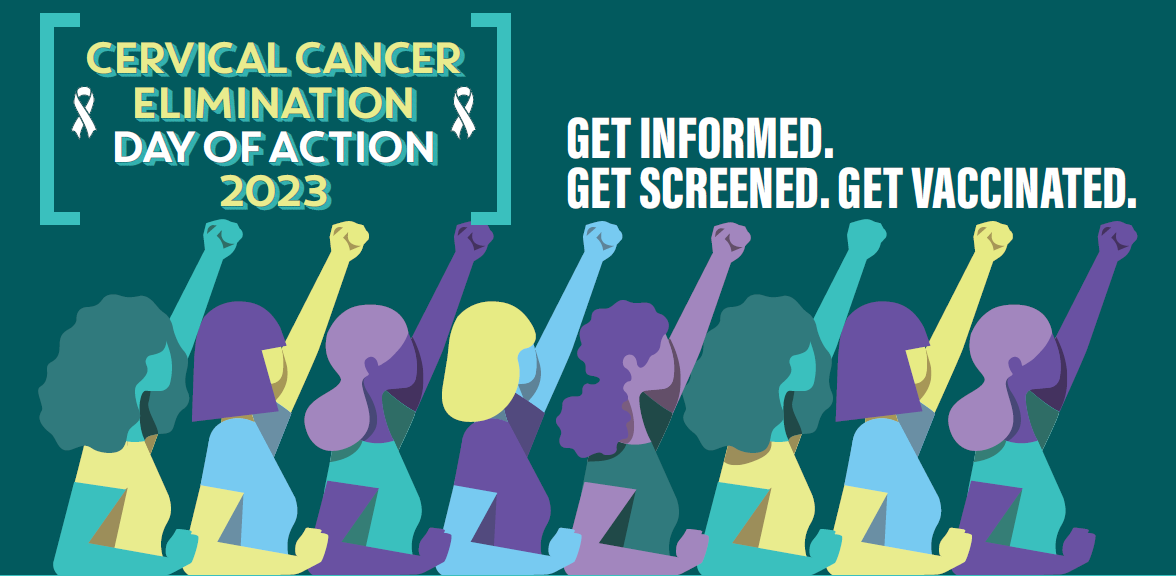
On November 17, 2023, the world will mark three years of the global collaboration with survivors, leaders, and advocates towards the elimination of cervical cancer. This provides an opportunity to celebrate the global commitment and review progress on the pathway to elimination, aiming for a threshold of fewer than 4 women per 100 000 women-years. This has catalyzed a social movement and sparked an annual tradition, bringing communities across the world together for a “Day of Action for Cervical Cancer Elimination”.
Cervical cancer is a worldwide health concern. Cervical cancer claims the lives of 300,000 women worldwide annually with 90% of instances and fatalities taking place in low- and middle-income countries. At the regional level, cervical cancer is the 6th most common cancer in women of the Eastern Mediterranean Region. In 2020, an estimated 89 800 women were diagnosed with cervical cancer in the Region and more than 47 500 women died from the disease.
Cervical cancer can be prevented and treated. When diagnosed, cervical cancer is one of the curable forms of cancer, if it is detected early and managed effectively. Cancers diagnosed in late stages can also be managed through appropriate treatment and palliative care.
The Human Papillomavirus (HPV) vaccination is one of the most effective and safe ways to prevent cervical cancer and should be available to girls everywhere. HPV vaccine is recommended for all girls between 9-14 years to prevent cervical cancer later in their life. Vaccination can be given in 1 or 2 doses for younger age group from 9-14 years, and 2-3 doses for immunocompromised individuals.
In 2020, WHO Member States issued a strong mandate and made commitments to eliminate cervical cancer as a public health problem- for the first time, 194 countries resolved to eradicate a cancer. With a comprehensive approach to prevent, screen and treat, cervical cancer can be eliminated as a public health problem within a generation. Global leaders, partners, campaigners, survivors of cervical cancer, and civil society are reiterating their commitment to abolishing cervical cancer via action.
The Regional Elimination Strategy for the Eastern Mediterranean is adapted to the regional context, and sets out five strategic action areas: strengthening primary prevention by accelerating HPV vaccine introduction and improving coverage; improving cervical screening and pre-cancer treatment; reducing the burden of suffering caused by cervical cancer by improving the availability of early diagnosis, treatment, rehabilitation and palliative care services; strengthening health systems to ensure integrated, efficient and equitable delivery of high-quality services across the vaccination, screening and treatment pillars, and appropriate and effective monitoring and evaluation systems; and lastly improving communication, advocacy and social mobilization to counter vaccine hesitancy, increase awareness of prevention and treatment, and improve acceptability of diagnosis. The last two strategic actions are two cross-cutting enablers highly relevant for the Region and are critical for improving the overall integration of health services and outcomes, while supporting the achievement of relevant health and development goals within the Region.


